MEN OF VALUE: BRAD WEISMAN by James Riordan
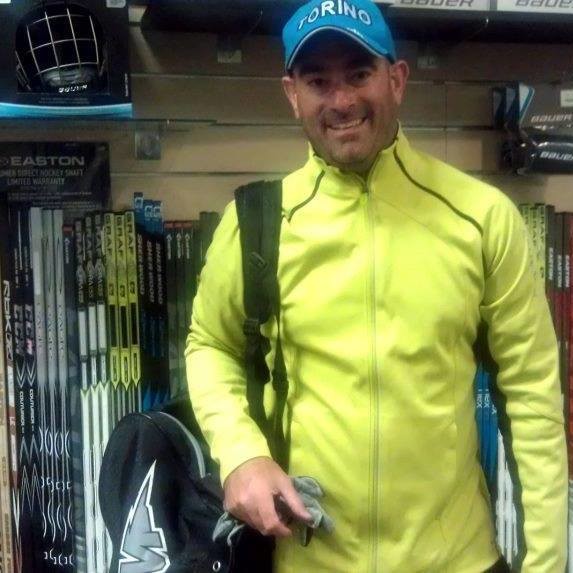
Brad Weisman’s background had mostly been in digital marketing, but his love for the outdoors and his passion for open air activity led him to create his own athletic gear and apparel company in 2002. “I started my first apparel company then,” he recalled. “I made jackets for guys who run in really cold weather. I was living in the Midwest at the time and training for the Chicago marathon. I hated that I had to wear sweatshirts. It drove me crazy. I was getting my MBA at the same time, and I actually called up the company who made the garments that luge and bobsled guys wear to make these shirts for running in the winter. It wasn’t for business, it was just for me. I was running in them and they kept me warm in 20 degree weather. Then I realized that this could be a business.”
Weisman then began attending trade shows as a next step. “I attended a trade show in Salt Lake City called Outdoor Retailer, which was twice a year. It’s the biggest outdoor trade show in the U.S. that I know of. It was there I heard the founder of the brand North Face speak. When he was finished he left the building and I noticed that no one was following him out, so I ran after him, put my hand out and introduced myself. I said, ‘Look. I’m starting this business thing and I would just love to be able to pick your brain a bit. I don’t want any money from you. I know everyone steps in line for something. I’m not asking for anything but just time.’ He was like, ‘Call me anytime you want.’ Over the next year and a half we became friends. His name is Hap Klopp, short for happy. His real name is Kenneth, but he’s such a spark plug and happy guy, that everyone calls him Happy.”
Out of this friendship grew a strong friendship. “He’s considerably older than I am,” Weisman added. “I’m 44 and he’s probably about 75 now. After a year of just being friends, he asked me how I was going to finance the venture and I said, ‘I don’t really know, I don’t have much money.’ I’d raised a little bit of money, but not enough to really sustain the business. He said, ‘Meet me in Salt Lake and I’ll write you the first check.’ I went to Salt Lake and he handed me a check. It wasn’t a ton of money, but we didn’t draw up a contract or anything. He was just like, ‘Here, take this. I trust you.’ He knew that I was a good guy and that I wasn’t going to go buy a car with it or something, which I didn’t. I never took a dime from it. I just kept it in the bank account and used it for the business. I never gave myself a penny. I literally lived off a couch during that period of time. Then, six months later, he said, ‘You know, you need bigger money. I’m going to hook you to this one guy who might help.’ This man was the founder of Umbro, the soccer brand. He sold the company and he was an older man. He called me up and said, ‘I bought you a plane ticket. You’ll be in South Carolina tomorrow.’ And then he hung up on me. I flew out to South Carolina and to make a long story short, that guy put my company on financial steroids. He gave me the money we needed. He gave me a salary when my company was making no money and I was able to survive. In fact, better than survive.”
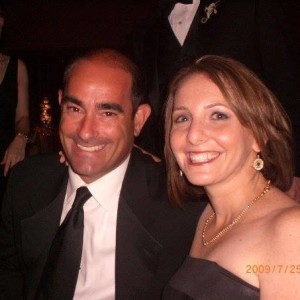 Weisman then began putting a team together. “One of the other people who became involved was a former Olympic speed skater whom I grew up with named David Cruikshank. David is the highest moral compass guy I know. He’s a really good guy. My brother-in-law, Lee Loebman, was also a co-founder of the company. In the end, we didn’t make a lot of money. Eventually, the main investor pulled out and we broke even. No one made any money, but no one really got hurt badly. I chalked it up as experience to use for my next business. The Olympic guy called me a couple years later and said, ‘Hey, I’m starting a hockey skate company and I think you can help me,’ so worked with him on a company called MLX Skates. I did that for a year. I basically did whatever they told me to do. By no means was I an executive. I was just a scrub doing whatever I was told to do. It could be real work or it could literally be lifting crap up all day. It was just whatever I was asked to do. I reported to a guy named Andy G. and he really taught me the importance of linear focus. That company got purchased by Easton Hockey after 15 months. We set out to do something with technology in skates that we had patents on, and it worked. Easton saw the value and bought the company.”
Weisman then began putting a team together. “One of the other people who became involved was a former Olympic speed skater whom I grew up with named David Cruikshank. David is the highest moral compass guy I know. He’s a really good guy. My brother-in-law, Lee Loebman, was also a co-founder of the company. In the end, we didn’t make a lot of money. Eventually, the main investor pulled out and we broke even. No one made any money, but no one really got hurt badly. I chalked it up as experience to use for my next business. The Olympic guy called me a couple years later and said, ‘Hey, I’m starting a hockey skate company and I think you can help me,’ so worked with him on a company called MLX Skates. I did that for a year. I basically did whatever they told me to do. By no means was I an executive. I was just a scrub doing whatever I was told to do. It could be real work or it could literally be lifting crap up all day. It was just whatever I was asked to do. I reported to a guy named Andy G. and he really taught me the importance of linear focus. That company got purchased by Easton Hockey after 15 months. We set out to do something with technology in skates that we had patents on, and it worked. Easton saw the value and bought the company.”
Weisman continued to learn and hone his business skills. “I had a couple corporate jobs for awhile. I’ve got three kids so sometimes I just did whatever I could to provide for the family. Recently I got involved with a guy who used to be the president of the European Division of Red Wing Shoes. Now he’s the CEO of a company called Xlnt Brain, which is spelt phonetically Xlntbrain.com. What they do is baseline concussion testing for athletes, which right now is a crazy hot topic and a huge issue within the NFL. There’s series of questions that you ask before the season. Then, if the athlete gets a hit on the head, they ask the same questions and compare the answers. Then that information is disseminated in an email to whom-ever you want it to go to. It could be the team manager or owner, the family doctor or maybe, if it’s a kid, his parents. Essentially, it puts everyone on the same page instantly through an app on your tablet or your laptop. Now, I’m starting two other companies with my friend David Cruikshank, the Olympic athlete. He’s more of a backseat partner because he’s also a power skating coach in the NHL, so he’s a pretty busy guy. He’s advising me and he’s letting me do the work, letting me run with the idea. I just give him a piece of equity in the business and he’s fine.“
Weisman has made great progress, especially when you consider that his goal was not just to accumulate a lot of money. “I never cared about having a big house or a fleet of Ferraris. I was raised in a family with a lineage of attorneys, who all were successful, but who all led very simple lives. They were very into family, not into fancy stuff. My dad’s brother was very successful and he lived in a very tiny house. He drove a Maxima that was probably 20 years old. My dad lived a little better than that, but we didn’t live in a way where you would drive by our house and assume that we were wealthy or anything like that.”
Weisman credited this attitude towards life as coming from his father. “My dad always said to me, ‘You know what, Brad? Those people down the street are going to Mexico on vacation, but they’re not going to have what you’re going to have. You’re going to have life experiences that are full of good lessons. You’ll be better off. You just don’t know it right now because you’re a kid and you think you deserve the world. You deserve nothing, but to learn and I’m going to spend a great deal of time teaching you about things that you really need to know. My dad was really hard on me. I wouldn’t say he was the perfect dad, but he did spoil me with life lessons. By the time my dad died, I was 37 and honestly, I’m not going to say that I didn’t need him, but I was prepared to live without him. It was because he left me with all these nuggets of truth and ways to approach life. Even though I’m Jewish, I learned to respect other religions and their beliefs, and really learn from those people too. I’m friends with Mormon people, Christian people, Catholic people. I love learning about other religions. It’s fascinating. A few years ago, the first time I picked up the bible, I was like, ‘Holy crap, this is amazing. This has to be true because nobody can just make this stuff up. It’s too detailed.’ Who the hell would make up a book that’s 7,000 pages long?”
 Many people wind up chasing money so much that they never have enough and never have time to develop anything else. “Getting back to what I was saying before, while I want to make enough money to take care of my family, my goal is bigger than that. I can’t fix the world, but I have to believe I can help somehow. Sometimes money doesn’t fix things, but it helps things. My goal is I want to do something on a humanitarian level. I haven’t 100% figured out what it is, but I don’t want to do it with my name rubber stamped to it. I want to do it all anonymously. I think there’s more honor in doing something good because I want to do it versus doing it because there’s something in it for me. I don’t want anything. If I can write a check to something and let the person know, ‘Don’t broadcast my name with this. Just say it came from somewhere else.’ I’m fine with that. I know that I did it. My wife may know and that’s all who need to know.”
Many people wind up chasing money so much that they never have enough and never have time to develop anything else. “Getting back to what I was saying before, while I want to make enough money to take care of my family, my goal is bigger than that. I can’t fix the world, but I have to believe I can help somehow. Sometimes money doesn’t fix things, but it helps things. My goal is I want to do something on a humanitarian level. I haven’t 100% figured out what it is, but I don’t want to do it with my name rubber stamped to it. I want to do it all anonymously. I think there’s more honor in doing something good because I want to do it versus doing it because there’s something in it for me. I don’t want anything. If I can write a check to something and let the person know, ‘Don’t broadcast my name with this. Just say it came from somewhere else.’ I’m fine with that. I know that I did it. My wife may know and that’s all who need to know.”
Brad Weisman described his values in this way: “I would say that family is first, always. Religion is second. Work is number three. I can’t be really good at my job if I’m not good at the other two. I also have a strong belief, which is actually a military core value, called service before self. I do things for others before I do things for me. I feel better doing that and I put myself last in line.”
Weisman defined freedom as “the ability to do the things that are important to you with no strings attached. For everyone, certain things are more important than others. Like I told you earlier, I don’t care about a big house or a fancy car. But I do care about having enough money to help the world out. I always say, ‘I don’t want to make a living, I want to make a life,’ but to make a life can take a hell of a lot of money.”
A big part of being a man of value is to know your purpose. Weisman agreed. “I knew at a really early age, my purpose was bigger than becoming some rich, famous guy, or something like that. I knew that my purpose was to do as much good work down here as I could. It’s not that different from a missionary. The idea is that someday I’ll go to where I am supposed to go and then I’ll do more good work there. My dad was an attorney and, even though he made a good living, he was a dogooder. When he died, he had to be the first guy in line for heaven because he did everything the right way. He would help a little old lady cross the street or open a car door for somebody he didn’t know. He’d even buy someone lunch whom he just met just to help the person out. He had a simple rule — treat the bus boys at the restaurant better than the owner of the restaurant. And he did it. By the end of the day, there would usually be a couple of guys he met on the street eating with us or talking to us because of my dad.”
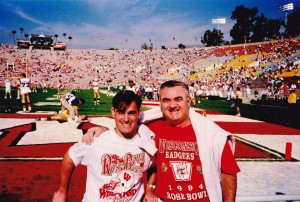 It’s no surprise that one of Weisman’s sources of inspirations is his father. “He’s gone now, but he wrote me a lot of letters and I saved every one of them. They all have life lessons in them. I go back to the box of letters all the time. It’s a box I have in my room. I swear to God, if my house was on fire, I’d care less about the house than that box of letters. It’s so important to me. My dad would write a letter and he’d say, ‘Hey Brad, here’s five things for you to think about this week while you’re at school.’ They were real things like, ‘Make sure that you focus on your school work. Make sure you make a new friend. Make sure you don’t have too many beers.’ Kind of funny stuff. ‘Make sure you take a nice girl out for dinner,’ or something funny like that. I used to kind of laugh at it, but he was trying to round me. It wasn’t like, ‘Hey, become a straight A student.’”
It’s no surprise that one of Weisman’s sources of inspirations is his father. “He’s gone now, but he wrote me a lot of letters and I saved every one of them. They all have life lessons in them. I go back to the box of letters all the time. It’s a box I have in my room. I swear to God, if my house was on fire, I’d care less about the house than that box of letters. It’s so important to me. My dad would write a letter and he’d say, ‘Hey Brad, here’s five things for you to think about this week while you’re at school.’ They were real things like, ‘Make sure that you focus on your school work. Make sure you make a new friend. Make sure you don’t have too many beers.’ Kind of funny stuff. ‘Make sure you take a nice girl out for dinner,’ or something funny like that. I used to kind of laugh at it, but he was trying to round me. It wasn’t like, ‘Hey, become a straight A student.’”
Another source of inspiration is Hap Klopp. “He’s been a father figure to me. He definitely has a real good core value base. I ask him lots of life questions and he helps steer me all day long. Also, David Cruikshank, the Olympic speed skater. We’re only a year or two apart so we’re basically contemporaries, but he’s filled with life wisdom. I go to him for a lot of stuff.”
As any person with real values knows, sometimes sticking to your values limits your life choices or keeps you from getting ahead or getting to do some things. “As an entrepreneur, you have what I would call a lot of ups and downs. Way more downs than ups, that’s for sure. I’ve gotten in places where I’ve been really, really dark, where I thought sometimes that I was just never going to be able to get out of a difficult situation. It may not have been that bad of a situation, but it felt that way to me it was. Sometimes that makes you do things you shouldn’t do or stop doing things you should do. There were times I stopped working out or even stopped brushing my teeth. I just stopped caring about everything and everybody. I was consumed by my darkness. I didn’t do anything bad, but I didn’t contribute to anything around me. I wouldn’t even help anybody that year. I just was like, ‘I can’t be here for anyone, not even my kids. I didn’t do anything horrible. I just did nothing. I was like, ‘Screw everybody else. I need to figure out how to be happy because I’m not happy and you know what? I’m going to be selfish for a full year.’ And I was. I did whatever I wanted and I didn’t talk to anybody. Every couple of months a friend would call and say, ‘Why haven’t I heard from you in three months?’ And I would be like, ‘Everything’s fine.’ Things weren’t fine, I was miserable.”
Like so many people with real values, Weisman is concerned about the direction the United States has been heading. “I think we’re in trouble because none of the other countries respect us anymore. There’s no unification between us and other countries. They don’t respect our culture, and I’m not quite sure we respect theirs, which is a little frightening. We need to learn to speak other languages. I’m not talking just Spanish. We need to learn to speak a bunch of different language. When you go to another country and you’re an American, and you attempt to speak their language, they are so impressed with you. You’ve taken the time to understand their culture. Right now, we think that we rule the roost. We don’t. We’re the bottom of the pyramid. We are, as my dad would say, ‘I don’t like to swear, but we’re whale shit.’ We’re at the bottom of the ocean right now. He would always say you don’t want to be whale dung because that means that you’re at the bottom of the ocean. I think that we are there. I have real concerns. I don’t know that it can be fixed very easily. I don’t know if the right President will be able to fix it. I think it’s more that the people of our country need to start respecting even the people who don’t respect us. Maybe, by doing that, they won’t be our allies, they won’t be our buddies, but they’ll slowly come on to our side. There’s just such a strong sense of entitlement in the U.S. right now. It’s a mess. Everybody thinks they deserve everything. It’s like, no, actually you deserve nothing and everyone around you deserves everything. “
It is that attitude of putting others before himself that makes Brad Weisman not only a success, but a true man of value.
___




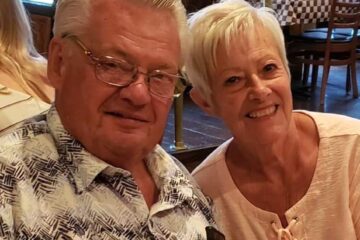
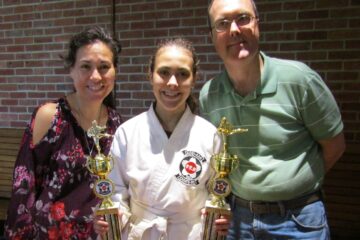

No Comment